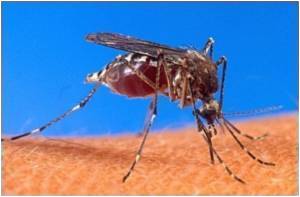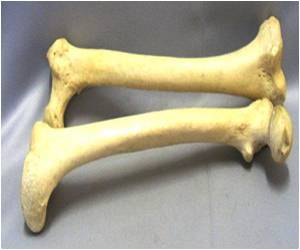A novel candidate malaria vaccine that has the potential to neutralize all strains of deadly malaria parasite has been developed by scientists.

Malaria is caused by parasites that are injected into the bloodstream by infected mosquitoes. The most deadly form, Plasmodium falciparum, is responsible for nine out of ten deaths from malaria.
In early November, research published in the journal Nature showed that the P. falciparum parasite relies on a single receptor, known as 'basigin', on the surface of red blood cells to invade the cell.
The parasite attaches a protein - the antigen RH5 - to the receptor, in a sense 'unlocking' the doorway for the parasite to enter the red blood cell. Once there, it grows and replicates, causing potentially life-threatening disease.
Now, the team led by scientists at the University of Oxford demonstrate that a vaccine they have developed induces an antibody response in animal models capable of neutralising all the tested strains of the P. falciparum parasite.
"Our initial finding, reported last month, was unexpected and completely changed the way in which we view how the malaria parasite invades red blood cells," said Dr Gavin Wright from the Wellcome Trust Sanger Institute, a co-author on both studies.
Advertisements
Dr Sandy Douglas, a Wellcome Trust Clinical Research Training Fellow from the University of Oxford and first author on the new study, also stated: "We have created a vaccine that confirms the recent discovery relating to the biology of RH5, given it can generate an immune response in animal models capable of neutralising many - and potentially all - strains of the P. falciparum parasite, the deadliest species of malaria parasite."
Advertisements
The latest discovery has been published in the journal Nature Communications.
Source-ANI













